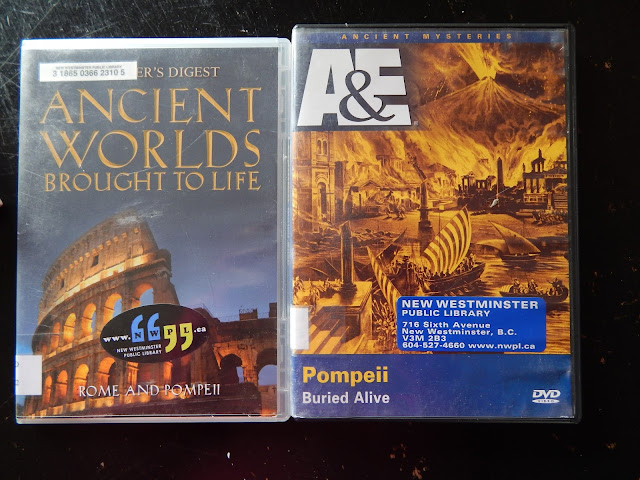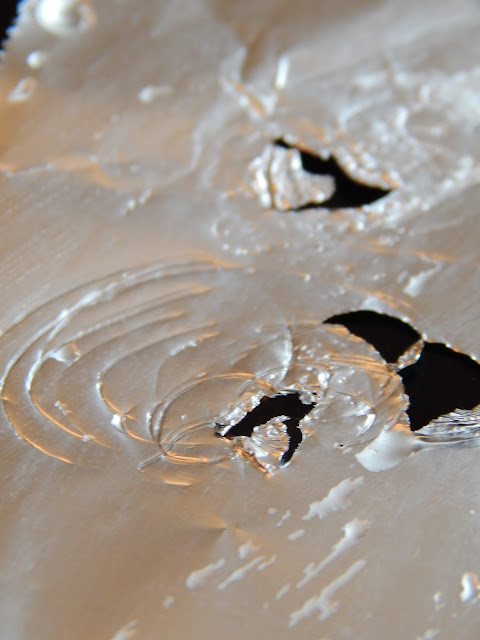We thought we'd bring Ancient Rome (a topic he's studied in other areas, and is still interested in) and combine it with our Science unit about Rocks and how minerals/rocks are sometimes formed. So naturally that led us to volcanoes and the notorious eruption in 79 AD in Pompeii. We've used books and DVD's to help with that.
This book, Ghosts of Vesuvius gives some great first hand descriptions of the eruptions as told by the 2 Pliny's. We also photocopied some pages to use as a backing for an art project - seen below. He chose words to circle/highlight which would be representative of that particular day, Aug 24, 79 AD
And this was just an art project we did for fun. I love it! I think it turned out really fun. He had a good time playing around with his facial features placement before finally deciding on this funny arrangement.
It's been a tough term. Just because I don't think either of us were really in the right head space for it. So it's nice to be taking a bit of a break for a while. Lots of Language Arts, Science, Social Studies and Math. Lots of biking and skateboarding and swimming. I didn't really keep track of our daily work/activities. It just got away on me. But I think we did alright. And hopefully we can keep a teeny tiny bit going this Summer. But I say that every year and every year we just enjoy the break. So who knows what will happen.

















































